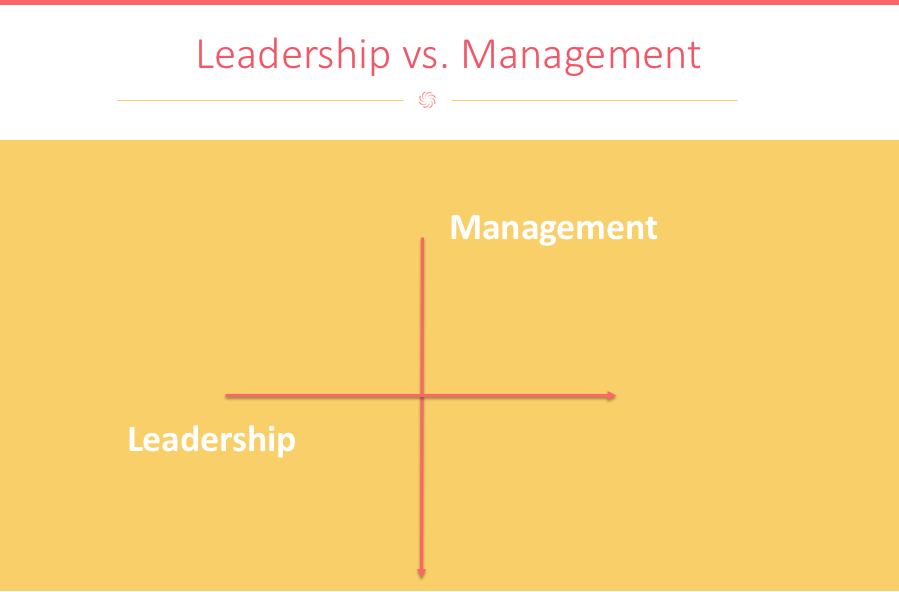A Human Way of Leadership
We all know someone who was a strong individual contributor and once promoted to a role of people management, genuinely struggled to survive. We observed them to either cling onto ‘old’ ways of working, not having sufficient emotional agility built up, being unaware of presence impact or fail at gaining the respect of peers… Does it sound familiar?
Marry the act of managing people the way one manages a task with demands of our modern day work environments and top it with day to day existential struggles of any human being and voila… You get a mess…
It is no secret leadership is more of an art than science. After all, there is no single widespread common trait to effective leadership. There are a variety of technical skills, a variety of cognitive abilities, a variety of competencies that go into making a person effective. Even the personalities and styles vary vastly. There is one commonality, however, we have found in our research – that’s a leader’s ability to connect to humanity. Their own humanity as well as others’.
Is this a new discovery?
Absolutely not! When one considers the Delphic oracle advice of ‘know thyself’ from thousand years ago or Marx’s philosophy to work from hundred years ago, this is, by no means, a discovery. We have known about the importance of topics such as self-awareness, self-connectedness, self-regulation to live fulfilling lives for centuries now. We have studied the impact of these measures in the workplace from a variety of angles. We know, for example, self-awareness (when practiced right) can drive learning and self-regulation can feed emotional agility.
Yet, despite the value of having more self-awareness, self-connectedness and self-regulation or other fundamental traits in the work place, many organizations fail to consider these aspects when they look for potential and/or engage in promotion decision making.
Why does connecting to our humanity matter?
As we progressed in the society and advanced our ways of working, we brought upon humanity independence, rationality, and pace that has and continues to stretch the mental and emotional capacities of our workforce, which in return, makes us feel isolated, anxious and exhausted. As Erich Fromm would say “Modern man still is anxious and tempted to surrender his freedom to dictators of all kinds, or to lose it by transforming himself into a small cog in the machine, well fed, and well clothed, yet not a free man but an automaton.” The inspirational video we shared back a few months ago received one of the largest hits on social media because it truly depicts current reality in terms of our relationship to our very own humanity. Further, in our collaborative research with Stanford, we confirmed 70% of business leaders report no longer living in the present. 7 out of 10 of us – people leaders (!!), though present in body some place, are mentally or emotionally disengaged.
It is almost like we have grown our cognitive capacities to exist and cope with 21st century demand and our hearts have remained in stone age.
Because our DNA has not changed in the last two hundred thousand years and because we don’t know how to better manage ourselves, it seems we have chosen to put ourselves on an auto-pilot to cope with the demands of our modern day lives. Think of it as carrying an ‘evolutionary baggage’ around with us all day, every day.
The unfortunate part of this is that when we feel isolated, anxious or exhausted inside an environment that stretches our boundaries, our autonomous response is to stimulate sympathetic nervous system, which triggers responses of withdrawal. When we withdraw, our capacity shrinks and our productivity starts to decline.

What’s your new concept of leadership?
Before going into the new model, we first have to understand leadership is different than management; but not because of its elevated status or because people in those positions are “special”, not at all. Leadership has nothing to do with “charisma” or a sexy job title or a X number in span of control. It is also not a home for a few chosen individuals. Nor it is better than management. Management and leadership simply are different and equally valuable parts of a larger system.
Management is about driving order and reducing complexity. It requires proper planning. It involves organization and problem solving skills. It is about “doing” things… To aid the organization.
Leadership is about adaptability and driving change. It involves vision setting through inspiration. It involves alignment and influence skills. It is more about “being” a certain way rather than “doing” something – executing power and/or authority, for example… To drive the organization forward.

Again, despite increasing focus on importance of leadership in the current discussions, we fail to acknowledge the importance of developing certain attributes for becoming an effective people leader in practice. Then, when people fail in so called ‘leadership’ roles, we take them out and often, do not even offer them the opportunity to go back to their previous positions.
If we want to create better work environments, we have to start thinking about leadership in a different way!
To help us rethink the definition of leadership, I want to share with you some key principles around our revised definition of leadership. In the future of work:
- We have to stop thinking about leadership as an elevated status and/or specific ability limited to a number of people in a handful of positions. A leader can be anyone, who holds self accountable for finding potential in people and in processes. Leadership is no longer about power or status—awakening humanity at work requires us to awaken potential everywhere. Leadership is a concept available to anyone.
- There is a pre-requisite to becoming a leader, which is self-leadership. One can only effectively lead others after one masters self-awareness, self-connection and self-regulation. Leadership of others that fully awakens humanity in everyone is a result of disciplined and knowledgeable self-leadership first.
- Leadership is not just about inspiration as management is not just about execution. They are interchangeable in each other. It’s a well-used phrase that leaders must win over the hearts and minds of those they hope to lead, but in the new world of work leaders must also consider that human beings are whole people with many choices over what they do and how they do it. Leadership requires us to be curating messages that speak collectively to the heart, mind, body and hands of others.
- Years and years of multi-disciplinary studies show us that we, human beings, are designed to connect. Under that primary drive, we have 3 specific motivations: 1. self-interest, 2. our need to care, 3. our need to have purposeful and meaningful lives. Unfortunately, we have built a system of capitalism on the pillar of self interest alone and forgotten the other motivators. We need to feed our humanly needs to help each other better cope and to build resilience. Leadership is as much about meaning and connection as it is for execution.
- Leaders, who embrace their humanity not only connect to their core purpose to communicate from there, they make it a priority to grow their wisdom, becoming genuinely committed to continuously growing their competence and resilience while become invested in nurturing others.
The kind of leadership that was born in the industrial revolution, and its implicit relationship to humanity at work, is gasping for its last breaths in today’s economy. Business today needs leaders who understand how to bind communities together, heal differences between people, and design work that enrich people’s lives. A new humanity at work is coming of age.
Do we dare?
Which Leadership Behaviors Drive Positive Employee Outcomes?

Leaders are a key element of any workplace: they playRead more…




Comments are closed.